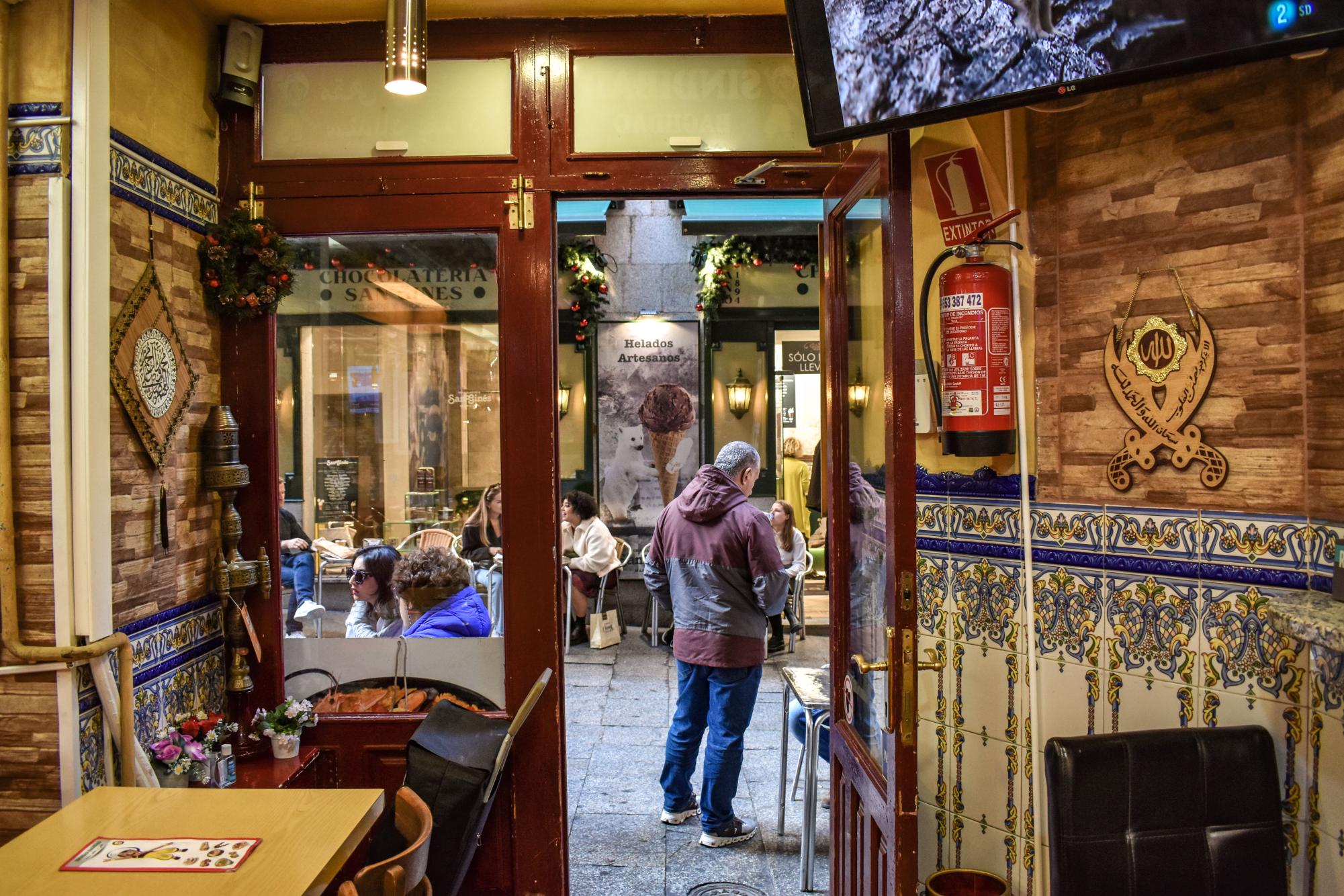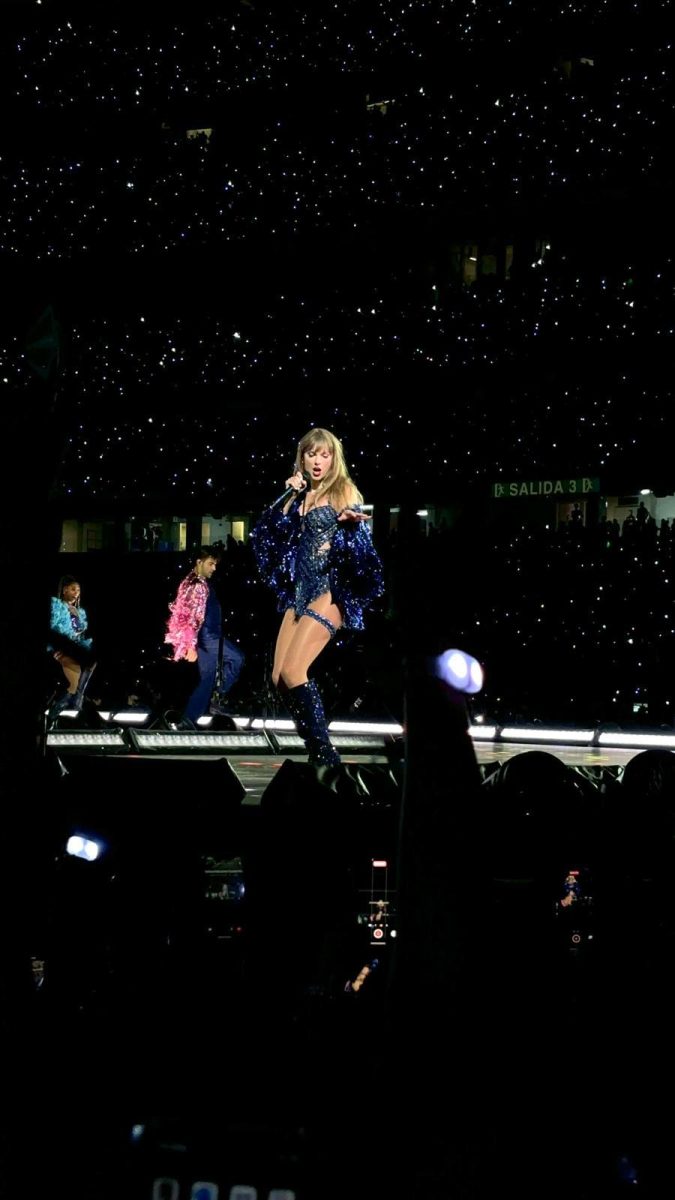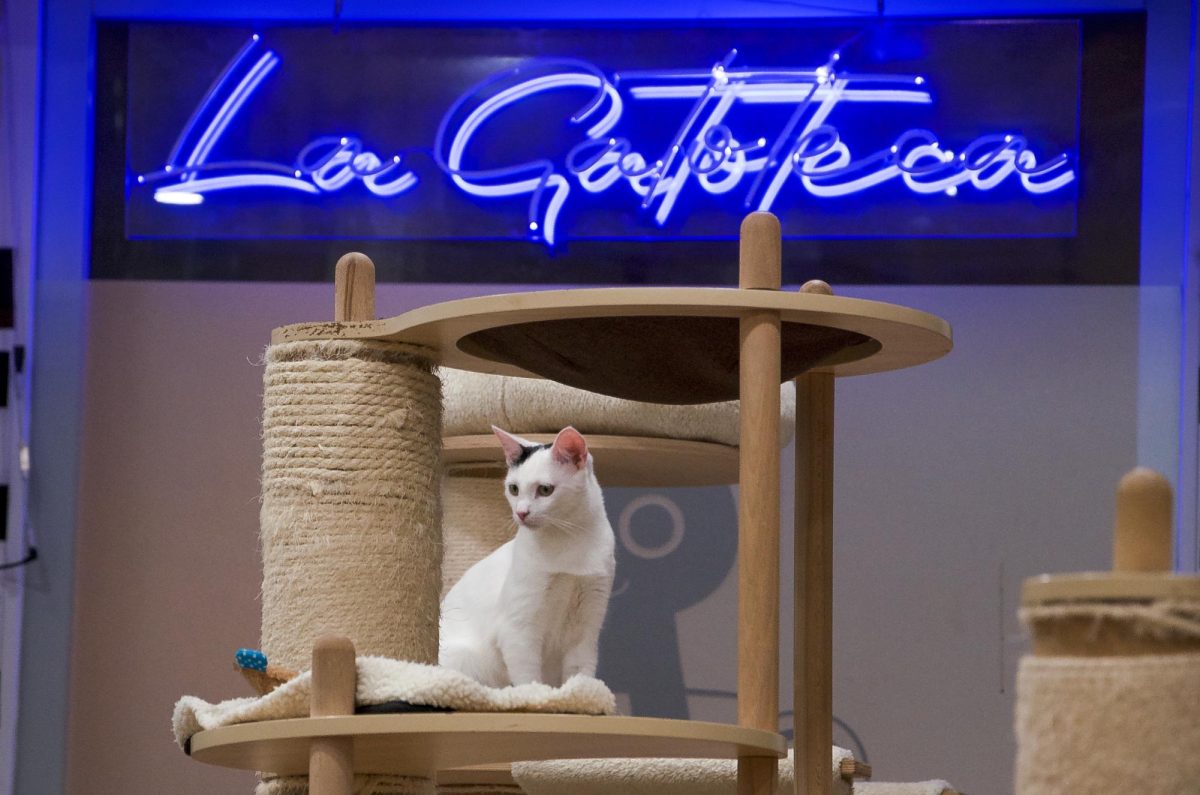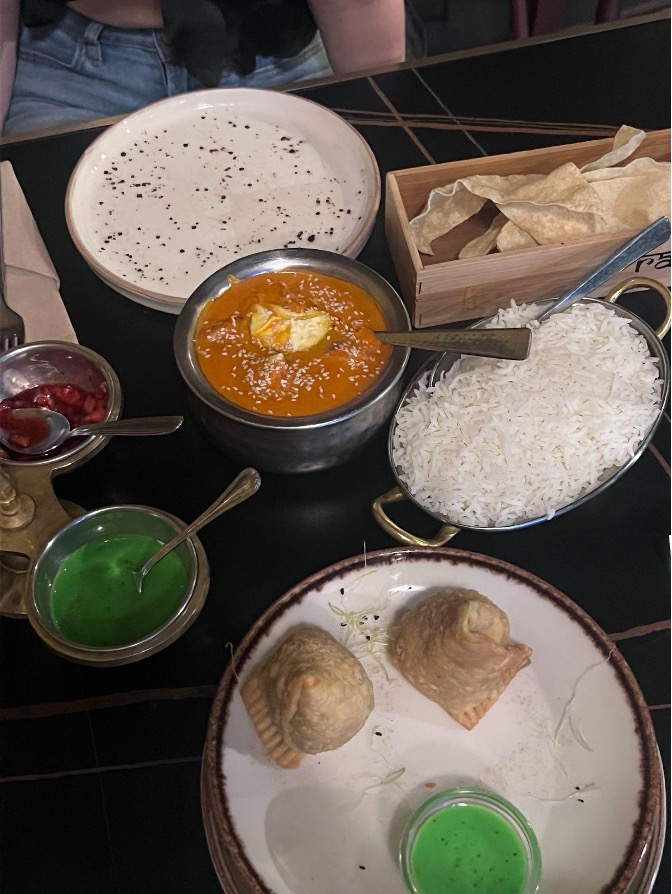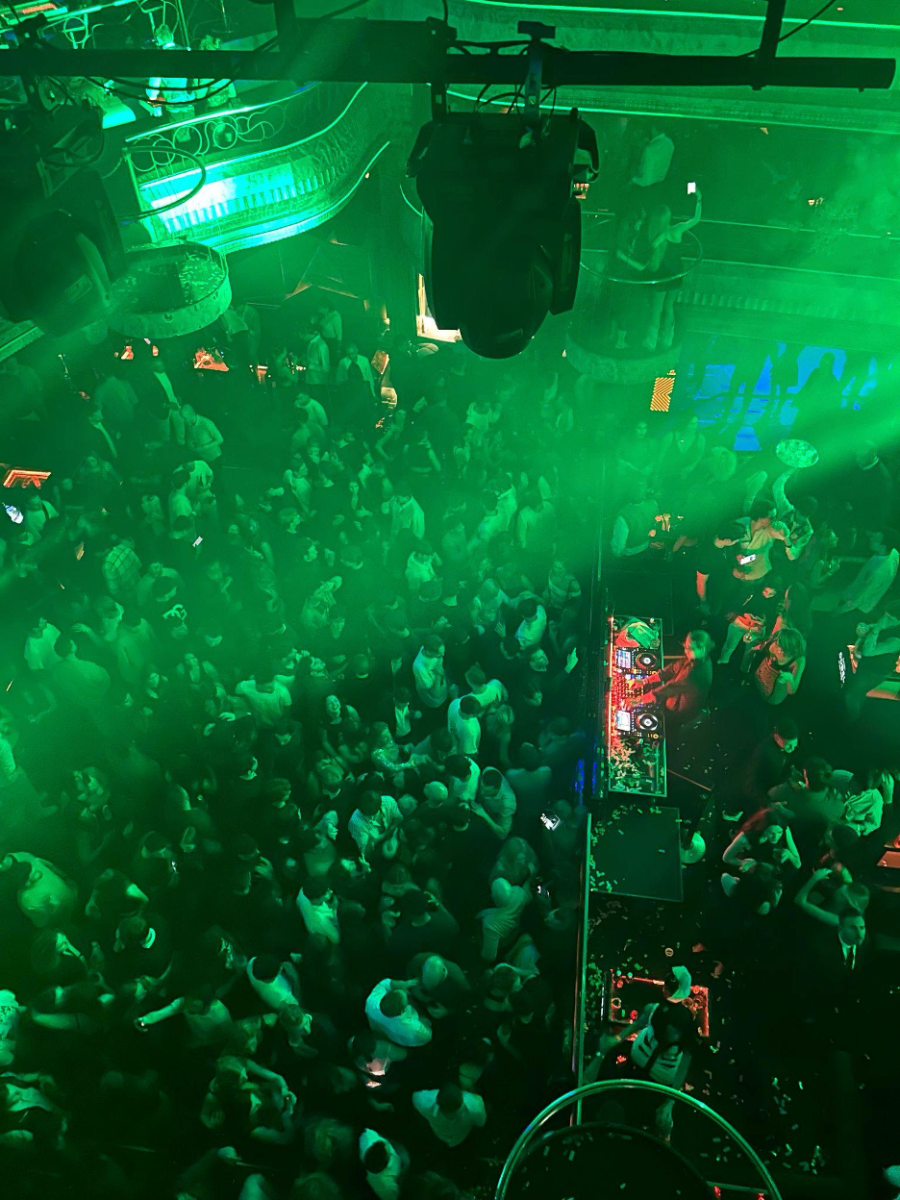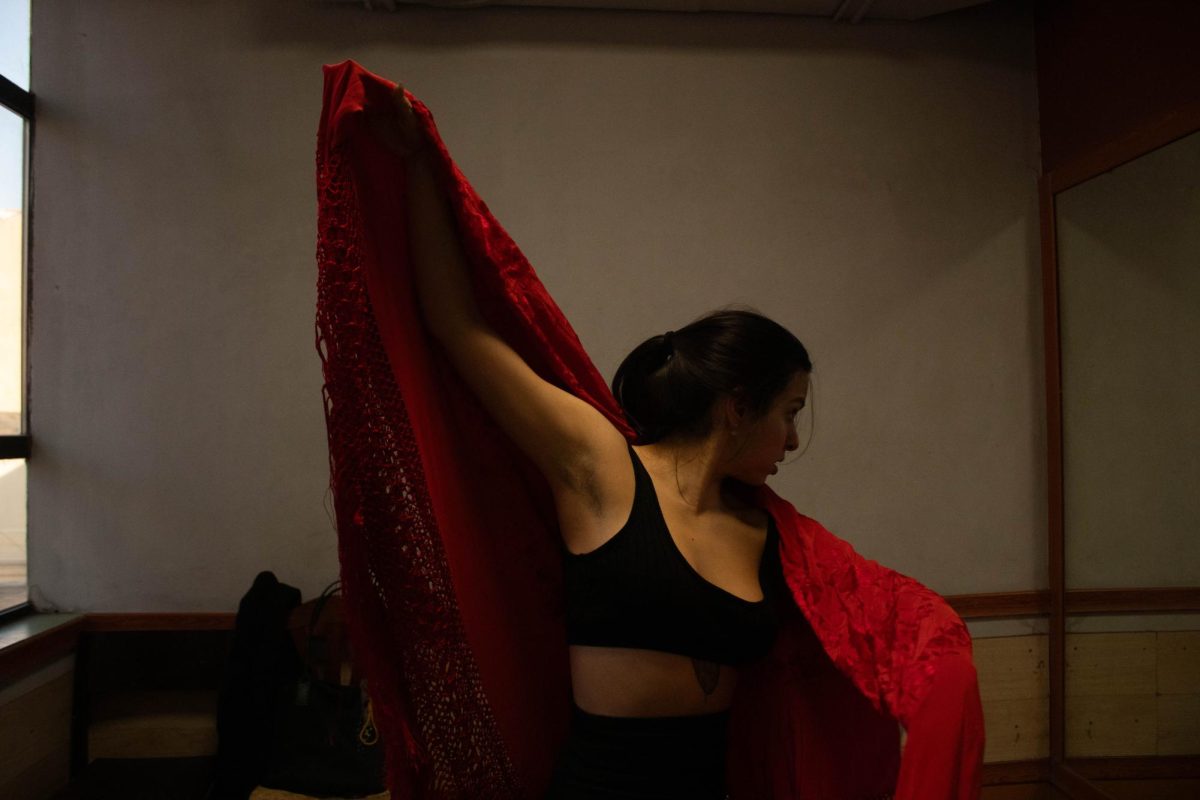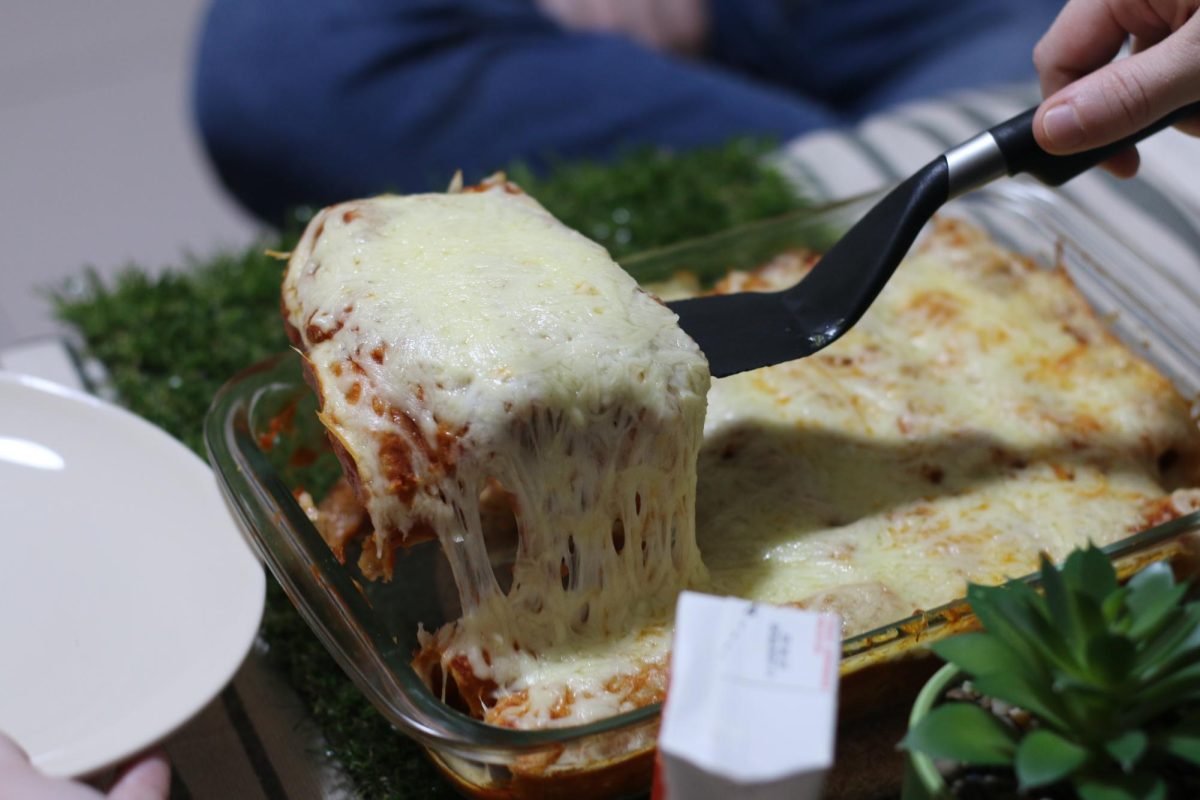A man, bald, with kind eyes and a warm smile, pushes his way through swinging butler doors and steps out into the bustling atmosphere of Sindibad Baghdad, an Arabic restaurant nestled in the Pasadizo de San Gines alleyway in the center of Madrid. His hands, full of ingredients: a box of filo dough, a bag of pre-shelled pistachios and walnuts, and a bowl of sugar water with drops of rosewater whisked in. He walks a few paces then sets the ingredients down on a square wooden table, big enough for two, where a deep non-stick metal baking dish already rests next to a bowl of soft butter.
The man is 54 year old Khalid Ahmed Hussein, an immigrant from Iraq, a devoted Muslim, and this is his restaurant, but owning a restaurant wasn’t always his dream.
He grew up with his older brothers and sisters in Iraq’s capital city, Baghdad, in a warm, colorful home, “but Baghdad has… There are crazy people there. There are crazy people everywhere, but in Baghdad is less safe. Riots, hardship, no room to grow. I love my home, but better to live somewhere safer.”
He left in 2003. “I was lucky, you know, I left right when the US invaded and everything with Hussein,” he said. “I was blessed to escape that.” He was the last of his siblings to leave; his sister had gone to Turkey a few years prior, and one of his brothers to Florida a few years before that, his parents stayed.
He unboxes the filo dough and slides the roll onto the table. He grabs the bowl of butter and spreads a thin, even coat across the bottom and sides of the baking dish.
“You have to remember to butter the corners,” he says. “That is very important. You don’t butter the corners, the baklava sticks, then the whole thing comes apart when you try to lift it.” He uses his fingers to demonstrate how the butter should be applied, extra thickly, where the walls of the pan meet. “Very important.” After finishing with the butter, he takes the roll of filo dough and rolls out the stack of paper-thin sheets of dough. He picks a couple up and lays them gently across the bottom of the pan.
“When I came to Spain it was difficult,” he says. He grabs a manual food chopper, takes off the lid, and lets a few handfuls of nuts fall from the bag into the small cylindrical container, watching them bounce off the blades attached to the middle. “Madrid was nice, but it was new, and everything unfamiliar, and hard to find work.”
He managed to get a low-paying job in an Arabic restaurant during the day and started working for a commercial food delivery service in the evenings to pay the bills, but “I felt alone, floating, like I had no roots.” He puts the lid back on the food chopper and cranks the handle, causing the pistachios to jump and clack against the sides as the blades mince them. “I shared an apartment with other Iraqis, very small. Small, but we shared everything, and they were like my brothers.”
Once he is satisfied with the size of the nuts, he reaches into the container and scoops up a handful of them. He brings his hand over the pan and lets the pistachio and walnut crumbles fall through his fingers onto the dough. He does it again, and again, until the entire layer of dough is covered by the chopped nuts. He sets the food chopper aside. “I bought Spanish books and started learning, talking to everyone I knew,” he says. “I was very bad at first, very bad. But I had no classes! I learned by talking to people, getting to know them. I learned quickly.” He thumbs through the dough pile again, lifting a few more from the stack. “I found a mosque. It is very far from my house, and not as grand as the ones in Baghdad, but very beautiful. Good community.”
He recounts how he found refuge in his religion; he could see the beauty of God in the way the cold marble walls of the mosque met the warm embrace of the wood that decorated the ceiling. He surrendered his worries on the carpeted floor of the musalla [1], letting the sourate al-fatiha slide from his lips like he let his troubles slide from his back as he performed each sujud and ruku. He lifts the paper-thin sheets of dough over the pan, then gently places them on top of the layer of nuts. He waits in silence as the sheets settle over the coarse and uneven nuts, coating the rise and fall of the crumbles like a layer of snow softens the jagged summit of a mountain.
As the days turned into months, and months into years, Khalid’s dream became a reality. He put a downpayment on a restaurant space of his own, started familiarizing himself with laws and regulation for food service in Spain, and even found love. “She is a good Muslim woman,” he says, reaching for the rosewater mixture. “She is a hard worker, and beautiful.” After a few years of marriage, they introduced a son into their growing life: Amir Hussein. Khalid scoops up a spoonful of sweet rosewater with a spoon and dribbles it over the dough. He scoops another small spoonful of water into the pan, then uses the curved back of the spoon to spread the liquid around. “This makes it sweet. The water soaks through and flavors the nuts when it goes in the oven, you know. You add a little rosewater when you’re dissolving the sugar, and even better.” He nods to himself.
He puts the sugar water down and reaches for the food grinder full of nut crumbles again. “My wife though, she was not happy. I don’t know.” A pause as he sprinkles another handful of pistachio and walnut over the dough, spreading the layer evenly. “I don’t know. She wanted something different, you know, and I wanted what I had. That’s just… that’s life.” Another nod, this time with the corners of his lips pulled a little further downward. He keeps his gaze fixed on the nuts. “But I still see my son every other weekend, we go and have fun, to the mall, to the mosque, to eat. I want him to have a good role model.” He lifts his eyes from the dish once more, if only to grab more sheets of dough.
What Khalid doesn’t say, as he positions the next layer of dough above the pan, is that he has created in this restaurant everything that he came to Spain looking for. Each dish is a labor of love, made with great care for the customer so they might share in the joy of his culture. His business has grown from just a small restaurant to a cultural staple; the regulars visiting his restaurant are also arabic immigrants themselves who come here to find a little taste of home. He goes out of his way to be the person to help people just like his old boss and roommates helped him; he hires Iraqi immigrants and adopts them into his restaurant family. Sarmad Jassim, one of his longtime employees, describes Khalid as “like a father, or an older brother. Well, he can be a lot sometimes, very, well, he likes things his way, but he is fair. He is a good man. I love working here, of course.” Another employee, Halal, can’t keep the smile off his face as he talks about being Khalid’s employee. “I am from Iraq, yes,” he says. “I came to Spain to find more opportunity and Khalid, my brother, he gives it to me.”
Tough times still come; business gets slow, suppliers back out of deals, employees don’t get along, but with the foundation of trust in God, Khalid takes all of these things in stride. Good times come too, like meeting people from all over the world, reaching more and more customers, and sharing the love, beauty, and richness of Arabic culture with every dolma and babaganoush that he serves them. Khalid goes back into the kitchen and brings out a bag of crushed dried rose petals, sprinkling them sparingly along with a few more pistachio crumbles as a garnish on top of the now-full baking dish. The red and green of the garnishes juxtapose each other; the dichotomy between the contemporary colors serve to amplify the distinct beauty of each, just as both the ups and downs of life come together to create beauty.
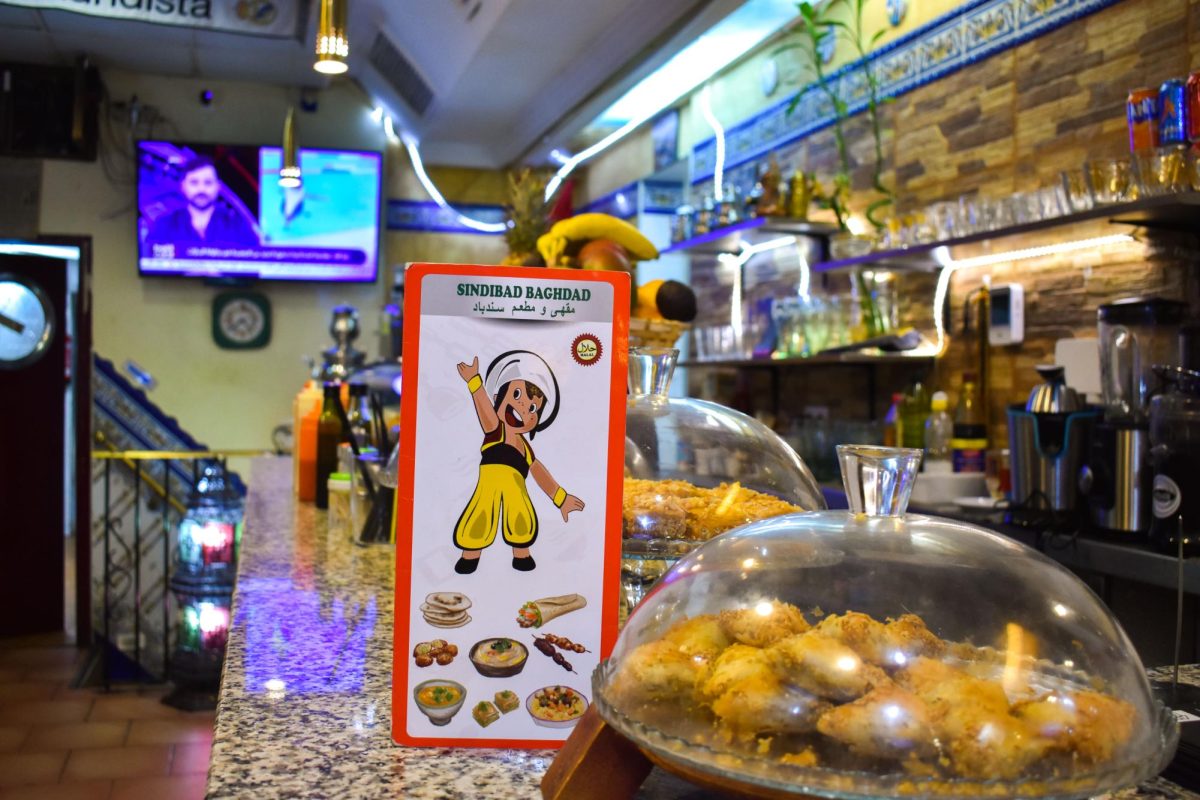
As he finishes with the garnish he takes a moment to look out over the restaurant itself; the chairs in every possible corner that have sat (and will seat) countless numbers of families and friends, the tables over which many conversations have been and will be had, the surahs over the doorways and the Quran on a shelf that represents Khalid’s devotion to God. The colorful patterned tilework that mimics the Girih tiles used in Islamic buildings, the televisions in the corner that fill up the restaurant when they stream soccer games, copies of laminated menus on the tables that he cleans with care each and every day.
Khalid gets up from the table and dusts his hands on his apron. He picks up the tray, turning around and going back toward the kitchen, where an already-preheated oven sits waiting. The butler doors swing shut behind him.
Sarmad, Halal, and other employees weave through the tables, carrying steaming plates of Bisara, Kibbe, and Falafel to a family seated in the corner. They push past the “employees only” door entering the kitchen, where they reach past the industrial refrigerators and the well-loved oven and stove tops to fetch bottles of sweet sauces that pair perfectly with the savory meats. The sound of a soccer game playing in the background and the families laughter is complemented by the bubbly brewing of red tea and the sizzle of a durum falafel wrap as it hits the hot tortilla press. Tendrils of steam carry the scent of toasted pistachio and sweet rosewater through the restaurant, past the cash register, past the Quran on the highest shelf, past the family at the big center table and past the television in the corner. It floats, curling and stretching past the worn wooden door and the painted “open” sign hanging crookedly from the window. It reaches the passerby on the street, drawing their attention, but it keeps going. The scent grows weaker and weaker the farther it travels; past shops and bookstores and winding alleyways, eventually dissipating into the heart of Madrid itself.
